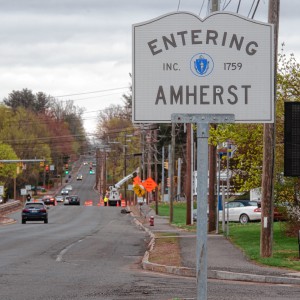Columnist Bill Newman: If we’re lucky this June
| Published: 06-02-2023 11:46 AM |
For me, and probably for you, the bromides began in grade school, and continued after that — the faith our teachers shared in the genius and effectiveness of our governmental system of three co-equal branches — the legislative, executive and judicial.
Especially the judicial. Designed to protect us when rights are threatened and when other branches of government have failed, the judicial branch was the fail-safe. Independent. Unbiased. Not political. Wise. So we were taught.
What a crock.
But I give my teachers the benefit of the doubt. After all, “Equal Justice Under Law” is engraved above the entrance to the Supreme Court. And the days when the Supreme Court legalized white supremacy, endorsed segregation, struck down New Deal legislation, and approved the internment of Japanese-Americans must have seemed like historical anomalies.
Unfortunately, they weren’t, which quickly brings us to — sorry, this really is unavoidable — Donald Trump.
Trump appointed three hard-right Supreme Court justices: Neil Gorsuch, Brett Kavanaugh and Amy Coney Barrett. He had that opportunity, and seized it, because of the machinations of Sen. Lindsay Graham, who after killing Obama’s nomination of Merrick Garland, later rammed through these three confirmations.
There’s an adage that you don’t need to be a genius to win at the Supreme Court. You only need to be able to count to five. Those three plus Alito and Thomas equal five. Plus Roberts makes six.
If only Ruth Bader Ginsburg had lived a couple more months. If only she had resigned when Obama was president and the Democrats controlled the Senate. If only.
Article continues after...
Yesterday's Most Read Articles
 Holyoke man finds bear paw in his yard
Holyoke man finds bear paw in his yard
 Petition to block auto dealership on King Street falters in Northampton
Petition to block auto dealership on King Street falters in Northampton
 First look at how little Amherst’s police alternative being used called troubling
First look at how little Amherst’s police alternative being used called troubling
 Developer lands $400K loan for affordable housing project in Easthampton mill district
Developer lands $400K loan for affordable housing project in Easthampton mill district
 Developer pitches new commercial building on Route 9 in Hadley
Developer pitches new commercial building on Route 9 in Hadley
 Boyfriend accused in slaying of Hampden sheriff’s assistant, former legislator’s top aide
Boyfriend accused in slaying of Hampden sheriff’s assistant, former legislator’s top aide
Here’s reality. The hard right controls the court and likely will for decades to come. Kavanaugh, Gorsuch and Barrett are all in their 50s, selected to for both their ideology and their youth. The Constitution makes Supreme Court justices lifetime appointments. No fools, those Republicans and the Federalist Society.
Chief Justice John Roberts publicly denies that the Supreme Court has transformed into an overtly right-wing political branch of government. No surprise there. For him to acknowledge this truth would strangle the myth of evenhandedness and intellectual honesty on which the authority of the Supreme Court rests.
The myth. The more cases the Roberts Court decides, the closer the far right-wing super majority come to achieving their goals, and the more the court undermines the pillar of its power.
That pillar is faith. The Supreme Court has no army or national law enforcement personnel. It depends on the other political branches of government and public and private institutions to abide by and enforce its rulings. The system functions not on the basis of the power of the purse or arms, but because the country accepts the court’s decisions. George W. Bush became president because the Supreme Court said so, in a decision that has no basis in law, precedent or the Constitution.
Recently, Justice Clarence Thomas’ accepting gifts and deciding cases in which his wife has an overt economic and political interest has received a lot of attention. As it should. Thomas’ non-disclosures and his refusal to recuse himself from deciding cases he has no business deciding stinks. But Thomas’ hubris — his contempt for the norms of judicial behavior — constitutes the least of the Court’s ethical lapses.
Much more disturbing has been the Roberts Court’s utter predictability: If a case involves voting rights, rights lose. If the case involves gerrymandering, gerrymandering wins. If there’s a contest between corporate polluters and the environment, the corporate polluters prevail. If there is an issue of righting historic wrongs, the court will negate the attempt.
It’s no secret how the court’s majority gets from here to there. If precedent presents a problem, they’ll overrule the precedent. If no legal theory exists, they’ll adopt a novel one germinated in a right-wing think tank. If the facts are unhelpful, they’ll fudge them (and if the dissent points this out, ignore the dissent).
A patina of reason and regularity, an illusion of normalcy, still plays a big role. Pomp and circumstance and an occasional unanimous decision on an easy issue makes this possible.
Increasingly, however, raw politics unapologetically prevails. Remember Chief Justice Roberts’ assertion at his confirmation hearing — that what he would do as a justice is “call balls and strikes.” That testimony probably now strikes you and most people as quaint, sadly almost laughable.
In the next few weeks, June being the last month of its term, the court will decide important questions: Can the North Carolina Legislature abolish judicial oversight of its gerrymandering and also cast its electoral votes for the presidential candidate it wants regardless of the popular vote? Will the court kill what little remains of the Voting Rights Act? Will it forbid all efforts to foster diversity on college campuses?
The fact that we are posing these questions speaks volumes as to how far to the right the court has moved. If we’re lucky, at the end of June we’ll be able to say, it could have been worse.
If we’re lucky.
Bill Newman is a Northampton-based attorney and co-host of Talk the Talk on WHMP. He writes a monthly column.
]]>

 Columnist Russ Vernon-Jones: Climate solutions tough, but can be done
Columnist Russ Vernon-Jones: Climate solutions tough, but can be done Bridget Miller: Why walkability is the pathway to a healthy Amherst community
Bridget Miller: Why walkability is the pathway to a healthy Amherst community Guest columnist Mariel E. Addis: Under seige from all sides
Guest columnist Mariel E. Addis: Under seige from all sides Columnist Johanna Neumann: Reaping the rewards of rooftop solar
Columnist Johanna Neumann: Reaping the rewards of rooftop solar
